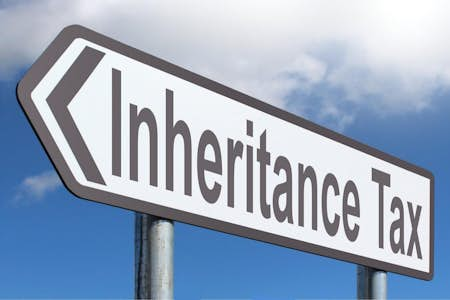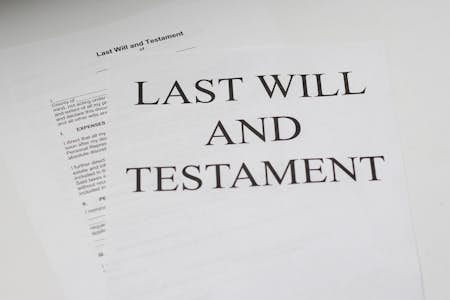There has been and continues to be a general misconception that a surviving cohabiting partner has the same legal recognition as a spouse. We often hear the myth that after seven years, cohabiting partners are effectively treated as married in the eyes of the law. We will now look at this issue in more detail because it has potentially serious repercussions for those who fail to prepare for the future.
Non-existent protection for common-law partners
A 2018 survey by Direct Line Insurance cast a surprising light on the area of cohabitation. The main takeaways from the survey were as follows:
- 38% of unmarried couples living with their partner had no idea of their legal rights if their loved one was to pass away.
- While 52% of married couples have a will, just 26% of cohabiting couples had such agreements.
- 15% of cohabiting couples had no instructions whatsoever regarding their assets in the event of their demise.
- Only 29% of cohabiting couples had any form of life insurance, often used to assist a surviving partner.
There seems to be a general assumption that a cohabiting partner's assets will automatically pass to the surviving partner upon death. This appears to have emerged on the back of the "seven-year rule" myth, whereby many non-married couples believe they are effectively married in the eyes of the law.
Let’s look at the actions which you should take to avoid further distress, confusion and potential financial hardship in the event of your death.
Writing your will
Information from the Office for National Statistics shows that in 2019 there were 19.2 million families in the UK. The breakdown of lifestyles was as follows:
- Married/civil partnership couples: 66.7%
- Couples cohabiting: 18.4%
- Lone parent families: 14.9%
This equates to around 3.5 million cohabiting couples, many of whom are under the impression they are protected to the same extent as married couples. Consequently, it is imperative to ensure that both cohabiting partners are protected in the future – a will is the easiest way to do this. There are many issues to consider when it comes to the distribution of assets upon your death.
Joint debts
The issue of joint debts is another area of law and finance that is often grossly misunderstood. If you take out a joint loan with your partner, each individual is responsible for the full amount in the eyes of the law. While both parties may contribute to regular repayments, in the event of one individual's death, the surviving partner would be responsible for the full outstanding amount.
There is a general misconception that 50% of the debt will be allocated to the deceased's estate; this is not the case. The most common forms of joint debt are loans, overdrafts and mortgages. While many financial arrangements may have an insurance policy, paying off the loan on the death of one of the parties, this is not always the case. So, it is vital to be aware of any insurance policies which may help to mitigate potentially massive debts in the future.
Joint assets
The subject of joint assets for unmarried couples is something of a grey area and one where it is dangerous to make assumptions. For example, while a surviving partner would still be able to use the funds in a joint bank account, a share of the funds may be claimed as part of the deceased’s estate. Unless the surviving partner was nominated as the beneficiary of the deceased’s will, these funds could then be distributed to direct relatives.
The subject of joint tenancies, as opposed to tenants in common, is a little more straightforward. In this situation, the joint tenancy would be passed to the surviving partner. These issues can become somewhat complicated when it comes to joint mortgages properties. Unless the asset is specifically allocated to the surviving partner in a will/legal arrangement, there may be a forced sale by the deceased’s estate.
Pension assets
Over the years, we have seen a significant increase in the number of personal pension arrangements, although company schemes are still popular. As a cohabiting partner, it is improbable that you would automatically be entitled to the deceased's pension assets. In many cases, a simple "expression of wishes form", naming your cohabiting partner as the recipient of your pension assets on your death, should suffice. However, not all pension schemes are that straightforward and sometimes, you may need to seek legal advice.
A report by Royal London Insurance highlighted a significant issue for those who fail to update their policy beneficiaries. It would appear that over 750,000 people in the UK are at serious risk of passing their pension assets to the "wrong people". This may be a previous spouse, civil partner or cohabitant. Many people fail to realise that a will leaving everything to their current cohabiting partner would not necessarily override specific beneficiary instructions attached to a pension or insurance policy. Keep them up-to-date!
Life insurance policies
Life insurance policies have become an extremely popular means of providing financial support for surviving partners. Again, it is unlikely that a cohabiting partner would be automatically entitled to a life insurance payout unless specifically mentioned as a beneficiary. As a consequence, it is crucial to review any life insurance policies regularly.
Rules of intestacy
The rules of intestacy perfectly demonstrate the need to ensure your will and beneficiary details are in order and up-to-date. In effect, this means that if you die without a will, your estate will be distributed between your direct relatives. It matters not that you may not have seen your relatives for many years, or maybe not even have been on speaking terms. On the flip side of the coin, a partner you may have lived with for decades would be legally entitled to nothing from your estate.
However, where you can prove that you were financially dependent on the deceased, you may be able to appeal to the courts.
Inheritance Act 1975
The Inheritance Act 1975 contains a provision for family and dependents that cohabitants can use to make a claim against the deceased's estate. To claim any assets from the estate, you would need to prove that a dead partner might "reasonably" have been expected to make a provision for you in their will. Evidence used would include time spent cohabiting and any degree of financial dependency on the deceased.
Cohabitants forced to use the Inheritance Act 1975 as a means of accessing assets “which they are rightfully entitled to” is not ideal. This would be happening at a very distressing time, having lost a loved one and potentially facing substantial financial pressures. Therefore, if you are cohabiting, you must have a will and ensure any pension and insurance assets have up-to-date beneficiary details. Missing paperwork could cause a massive problem for your surviving loved ones!
It’s dangerous to assume………..
Unfortunately, many people relate long-term cohabiting to the legal protections afforded to married couples and civil partnerships. Common misinformed myths, such as the seven-year rule, could ultimately prove emotionally and financially damaging to your surviving partner. Consequently, it is essential to take financial advice and ensure that your affairs are in order and beneficiaries up-to-date.







